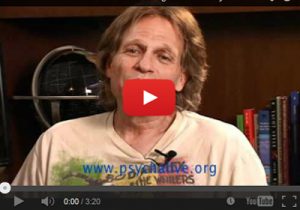Why Are People Afraid to Grow Up?
 In a previous blog, “Living Life as an Authentic Adult,” I briefly described the reasons why so many people operate as children emotionally and refuse to grow up. I discussed how, to varying degrees, individuals are restricted in their ability to function in an adult mode because of “unresolved childhood trauma and the defenses they form to relieve emotional pain and existential dread.” In this blog, I explore the psychodynamics underlying the tendency to hold onto a child’s perspective despite the emotional turmoil, maladaptation and unhappiness it creates.
In a previous blog, “Living Life as an Authentic Adult,” I briefly described the reasons why so many people operate as children emotionally and refuse to grow up. I discussed how, to varying degrees, individuals are restricted in their ability to function in an adult mode because of “unresolved childhood trauma and the defenses they form to relieve emotional pain and existential dread.” In this blog, I explore the psychodynamics underlying the tendency to hold onto a child’s perspective despite the emotional turmoil, maladaptation and unhappiness it creates.
The principle barriers to living an adult existence are the fears associated with becoming adult. There are five major aspects to the fear of growing up:
1. Symbolic separation from parents and other individuals who have offered some sense of security. This occurs as we mature, form a new and different identity, choose our own path in life and establish new relationships. These types of separation experiences can arouse a sense of loss related and fear. When we are anxious or frightened, we tend to reconnect to dependency bonds.
2. Preference for fantasy as a defense mechanism over reality considerations. Painful events in childhood often lead to suppression, dissociation and varying degrees of retreat into fantasy processes. These habit patterns become addictive and long lasting.
3. The threat of feeling one’s aloneness. Knowing ourselves as independent, authentic adults makes us acutely aware of painful existential issues. In addition, there is a fear of being different or standing out from the crowd. This is related to the primitive evolutionarily based threat of being separated or ostracized from the tribe, which is emotionally equivalent to being left to die.
4. Adults have more responsibilities for self and others. In general, adults carry a heavier dependency load, as they are looked to for direction, support and actual parenting. This makes them more cognizant of the fact that their own unresolved dependency needs from childhood will remain unfulfilled.
5. Death anxiety. Death fears are triggered by both negative and positive events. As people sense time passing, are confronted with sickness, frustrations in life and reminders of death, they fear about their mortality. Paradoxically, as men and women give special value to their lives, experience unusual successes, and find new and unique gratifications, they tend to suffer more death anxiety. The more we value life, the more we have to lose in death.
Generally speaking, most people retreat from being fully alive adults in order to avoid reawakening the unconscious, as well as conscious, feelings of terror surrounding death. Indeed, systematic research indicates that people respond to the fear of personal mortality at a subliminal level yet modify their lives accordingly, often without any awareness of their death anxiety.
Sometime between the ages of 3 and 7, children first realize the fact that they will eventually die. They handle this crisis by repressing the loneliness, hopelessness, rage and terror surrounding the evolving awareness of their finite existence. They institute numerous defenses to surpress and deny the reality of death and form fantasies of fusion in an effort to insure that the unconscious pain and dread will not resurface. Once the child suppresses the fear of death, certain events in life arouse or intensify it, whereas other circumstances and defenses relieve it. The defenses that ameliorate or quiet death anxiety act as a major interference to becoming an authentic adult.
Defenses that reduce death anxiety but act as a barrier to personal growth and maturity.
The Fantasy Bond: The core defense is the fantasy bond, originally an imagined connection with one’s parents, that offers a modicum of safety and security. Early in life, children form this illusion to compensate for personal trauma, i.e. to reduce feelings of emotional hunger and frustration brought about by deprivation, rejection, separation and loss. Later, these same fantasy connections are transferred to new relationships, groups and causes. Because of this propensity to cling to unreasonable dependency ties, people tend to remain fixated at a child’s level of functioning. They project negative aspects of the attachment with their parents onto current situations often recreating their early trauma in the present day. The extent to which people come to rely on fantasies of fusion while reliving the past is proportional to the degree of psychological pain they experienced in childhood. People excessively involved in fantasy bonds tend to be overly dependent on others, progressively maladaptive and fail to function successfully as adults.
Under conditions of stress, when parents are largely mis-attuned or punitive, children cease identifying with themselves as the helpless child, identify with the powerful, punishing parent and take on those negative traits as their own. In other words, they incorporate their parents at their worst not as they are typically, and find safety in thinking, acting and feeling like their parents. To preserve this imagined connection, one must retain a sense of sameness and avoid differentiation. People feel frightened to both move away from the merged identity with their parents and to break with any negative identity they acquired in their families.
During this process of incorporation, when children feel overwhelmed by fear, they fragment into both the parent and the child. As they grow older, they continue to treat themselves much as they were treated, both nourishing and punishing themselves in the same manner their parents did. The result is that people tend to vacillate between the parental and childish state, both of which are immature. Consequently, they spend only a small portion of their time in the adult mode.
Literal and symbolic denial of death: The fear of death drives people to form belief systems and worldviews that deny existential realities by offering literal or symbolic immortality. In Beyond Death Anxiety: Achieving Life-Affirming Death Awareness, I described literal immortality as manifested “in beliefs in an after-life or reincarnation, which have a calming effect on unconscious death anxiety.” People who approach life from a child’s perspective often extend the fantasized connection with their all-powerful parents to various religious belief systems and share with fellow believers the magical conclusion that there is a God in the heavens acting as a parental figure who rewards and punishes them. They are truly God’s children.
Symbolic immortality is manifested in the imagination that one can live on through one’s works, through the accumulation of power and wealth, or through one’s children. However, children are capable of relieving their parents’ death anxiety only if they make similar choices, entertain the same political and religious beliefs, and exhibit similar personality traits. Many parents attempt to defend themselves by molding a child in their image, insisting on sameness and discouraging their child’s unique interests and goals.
Vanity: People who exist in a child mode often possess an exaggerated positive image of themselves in certain areas. This sense of being special offers a kind of magical thinking that denies their vulnerability to death. On an unconscious level, they believe that death happens to someone else, never to them. They retain an image of invincibility and omnipotence, which served as a survival mechanism in early childhood, and utilize it whenever they become anxious regarding their mortality. The trouble is that vanity and narcissism set people up for painful experiences of disillusionment and rejection. Attempting to maintain a superior image causes them a good deal of unnecessary stress and anxiety.
Preoccupation with trivial issues and problems: The certainty of death can lead to a basic paranoia that many people project onto other aspects of life that do not warrant an intense reaction of helplessness and powerlessness. People distract themselves with everyday problems and trivial events to which they over react with anger, fear and panic. When preoccupied in this way, they are able to shut out feelings about life and death concerns but at the expense of feeling childish and powerless.
Microsuicide: Microsuicide refers to a myriad of defenses that interfere with the attainment of emotional maturity by accommodating to death anxiety through attacking or limiting oneself. In trying to exert control over their fate, people narrow their experience and gratification thereby giving up important aspects of living, including meaningful relationships, mature sexuality and significant priorities and goals. In retaining attitudes of progressive self-denial and self-hatred along with maintaining addictions, dangerous risk-taking behaviors and other self-defeating habit patterns, people shut out pain and create a false sense of omnipotence with respect to the reality of death. By diminishing their lives, they have less to lose in dying. However, in their retreat, they tend to experience painful feelings of existential guilt about their self-betrayal and feel regret for a life not fully lived.
In Conclusion
Fear, especially the fear of death, constitutes the ultimate resistance to a fulfilling and successful life. Living as mature adults with a minimum of the defenses described in this blog, leaves people acutely aware of their aloneness and of the uncertainty and ambiguity of life. At the same time, it offers virtually unlimited possibilities for personal gratification and self-expression, and is well worth fighting for.
People can aspire to developing a mature approach to life and move toward a more satisfying and freer existence. This subject will be addressed in my next blog.
Learn about Dr. Robert Firestone’s book The Self under Siege: A Therapeutic Model for Differentiation
Tags: adult, growing up, living as an adult, personal growth, separation anxiety








your blog is amazing.
i, for one, am among those people who fear maturity. to be honest, i don’t know how to fix myself to act, right to my age. whenever i face other people, other than family, i stiffened. i felt like choking or can’t move properly because of their presence. i know, there’s terribly wrong with me, since childhood…
now that i realized, after reading your blog, i realized that, ever since i was a kid, i always try to run or escape reality, to avoid the feeling of being alone. i always conjure up imaginative fantasies or stories that i only knew about. even now, i still have it. i felt like, i can’t escape from it. or perhaps i’m afraid?
i simply don’t know….
anyway, sorry for that. i didn’t mean to write my whole life crisis in it.
to me, its just that, what you wrote- really helpful. reading it all.
thanks for writing something like this 🙂 it really helps people
that article was trully describing me.since i was 15 and my parents broke up i had sum terrible outbreaks to my mother,even she was ever there supporting me,i suppose i supported my father cause i am his son.when i had my 18 th birthday i realised i didnt ever want to leave that age cause of responsibilities and obligations would come all the way.in the beggining i thought it was like i wanted to have some privacy but then i realised i wanted to have quiet ppl next to me,so i preferred talking with older ppl than having same age friends even if i do.sometimes ppl mocking me but i really don’t care,i know i can make this,anyway perfect article
sorry for my bad english and have a nice day
Good blog, you hit the nail on the head. I’ve spent my whole life wondering why people do what they do, though I suppose in truth I was trying to figure out why I do what I do.
It gave me a lot to think about, I looked this up before and disappointedly found nothing of interest. So I appreciate you taking the time to write such a thoughtful article and simply wanted to say thank you.
I enjoyed reading your blogs, however, there was no mention about Adult Children of Alcoholics. I would of liked to hear this included in your blog as well.
Amazing!
It seems like everything you write about goes back to the fear of death and trying to avoid realization of death. Then you say, that this causes childish behavior. But yet you also say that fantasy bonding is a result of trauma. So, then, is all death anxiety a “childish” response to childhood trauma? And so it would follow that “adulthood” could only be lived authentically by those who don’t have childhood trauma. In other words, what you call being “adult” really is only the lucky result of a secure upbringing, not “childishness” whereupon a person should “choose” to act mature.
I am all of these, exvept nothing bad happened in my childhood that traumatized me. I stopped growing at a young age and had to take growth hormone, before which i was very, very sick. But that doesn’t explain why I am afraid of growing up, does it? So, if there was no “trauma”, what then causes this?
So the way to grow up is to not be afraid of death; but unfortunately because we are human, we are afraid of death. So, the case is unresolvable it seems. Dependency being the major way that we ameliorate death anxiety, it’s no wonder that there are so many dependency related issues such as addictions and codependent relationships with people.
Though it has been proven that even rats turn to drugs when separated off from their clan, so the death anxiety that people feel must be much more than a mental/existentially felt anxiety/ dependency/”immaturity/childishness”- it must also be a physical, chemically induced anxiety in the brain.
Thanks for your insights. My only concern is that you assume that God does not exist and that religious always perpetuate childlike states of consciousness. I’m not religious and am maybe more or less agnostic. But I’d never assert that I know enough about the universe to prove that God/gods definitely don’t exist. No human has that big of a perspective. Also, traditional religious can keep people immature, but they can also serve as catalysts for significant humanitarian achievement. The first example of that phenomenon that pops into my head is the legacy of Dr. Martin Luther King.
I don’t agree with everything you’ve said and there are a couple inconsistencies/contradictions. But overall, I think this was a really enlightening and well-thought out piece.
I’ve identified a lot of myself here, like being stagnant due to unresolved sexual trauma as a child. My existential dread and fear of being alone.
I loved your point about how people (like myself) often self-sabotage and close themselves in to gain a sense of control. Which is ironic because this actually creates a sort of mental cage. This is definitely something I’ve unconsciously done and need to work on unlearning.
I don’t necessarily agree with your presumption that religion stunts maturity or is a form of escapism. I was atheist, and religious in different periods of my life. I will say, I was the most proactive and inquisitive during the latter.